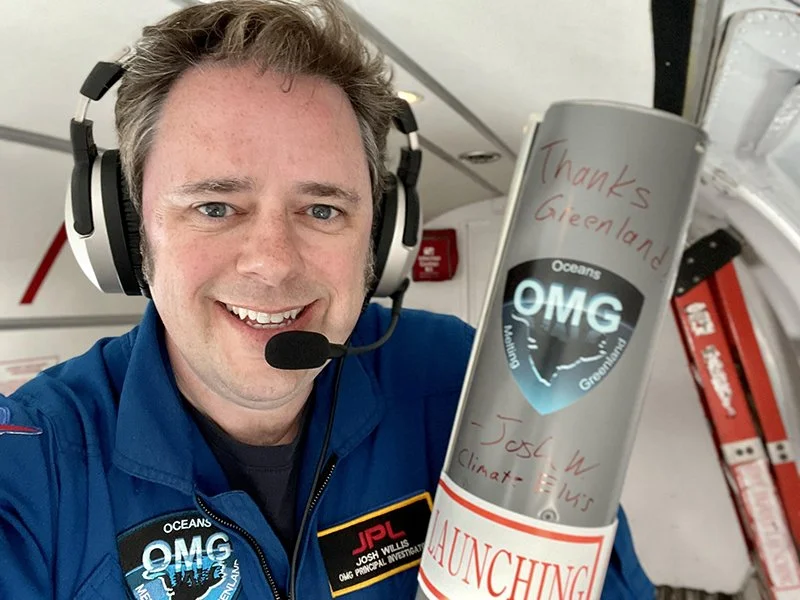#SoCaltech: Josh Willis
“Sea level rise is actually one of the most easy-to-understand and comprehensive indicators of how much we're changing the climate. The warming that we're causing by introducing this extra [carbon dioxide] gas—the clearest effect it has is on the rising of the oceans. But [sea level rise is] also one of the most damaging impacts of human-caused climate change because so many people—hundreds of millions—live near the coasts, and as the oceans rise, structures are threatened [and] flooding rates increase dramatically and sometimes all of a sudden. We think of this as a slow, steady rise, but in fact if you're at the coast, it’s not the slow steady rise that gets you, it’s the fact that this big storm or this high tide that you used to be safe from—now it's in your living room.”
Josh Willis, project scientist at JPL, discussed in his June 29 Watson Lecture how satellite missions are providing revolutionary data for understanding ocean and ice interactions, and leading to improved estimates of global sea level rise. Willis led an airborne mission called Oceans Melting Greenland (OMG), which just completed a six-year mission, during which it measured changing water temperatures on the continental shelf surrounding Greenland and determined how marine glaciers reacted to the presence of warm, salty water from the Atlantic.
#SoCaltech is an occasional series celebrating the diverse individuals who give Caltech its spirit of excellence, ambition, and ingenuity. Know someone we should profile? Send nominations to magazine@caltech.edu.

